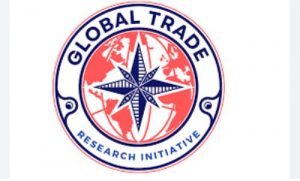India’s retaliatory tariff proposal may cast shadow on trade pact talks with US: GTRI

New Delhi: India’s proposal to impose retaliatory import duty on certain US products in response to American tariffs on steel and aluminium could cast a shadow over ongoing negotiations for a trade agreement between the two countries, think tank GTRI said Tuesday.
The Global Trade Research Initiative (GTRI) said that if the US engages in consultations with India on the matter or withdraws tariffs, a resolution may be reached.
Otherwise, India’s retaliatory import duties could take effect in early June, potentially impacting US exporters and deepening trade frictions, it added.
In a significant move targeting US safeguard duties on steel, aluminium, and their derivative products, India has formally notified the World Trade Organisation (WTO) of its intention to suspend trade concessions granted to the US.
The proposed suspension of concessions could take the form of increased tariffs on selected US products. While India has not disclosed those items yet, in a similar move in 2019, it had imposed retaliatory tariffs on 28 US products, ranging from almonds and apples to chemicals.
The notice, issued May 12, marks India’s invocation of its rights under a provision of the WTO Agreement on Safeguards (AoS).
This legal provision allows a country to retaliate when another member imposes safeguard measures without proper notification or consultations. India had sought consultations with the US in April, but Washington responded that the tariffs were imposed on national security grounds and should not be considered as safeguard measures.
“India’s latest WTO action comes at a delicate moment. New Delhi and Washington are exploring a broader free trade agreement, and this retaliation could cast a shadow over negotiations,” GTRI Founder Ajay Srivastava said.
He added the move signals a tougher Indian stance, especially in politically sensitive sectors like steel and aluminium that align with its Make in India industrial strategy.
“Much now depends on Washington’s response. If the US engages in consultations or withdraws the contested measures, a resolution may be reached. Otherwise, India’s tariff response could take effect in early June,” he said.
India’s future countermeasures could include raising tariffs on a list of US imports in a manner that is ‘substantially equivalent’ to the damage inflicted on Indian exports.
According to the WTO notification, US safeguard duties impact about 7.6 billion worth of Indian exports, resulting in an estimated USD 1.91 billion in additional duties collected by America.
India intends to recover this amount through retaliatory duties on selected American goods.
The GTRI further stated that at the heart of the dispute is the continuation of US safeguard tariffs on imports of steel, aluminium, and related products, originally imposed in 2018 on national security grounds and renewed multiple times since.
The latest extension was enacted via US Presidential Proclamations dated February 10, 2025, with an effective date of March 12 this year.
India argues that these actions, though never officially notified by the US as safeguard measures, function as such and violate WTO rules under the General Agreement on Tariffs and Trade (GATT) 1994 and the Safeguards Agreement.
“Crucially, the US did not hold mandatory consultations under Article 12.3 of AoS, prompting India to assert its right to retaliate,” Srivastava said.
This is not India’s first brush with safeguard retaliation. In June 2019, India imposed higher tariffs on 28 US products after the US removed India from its Generalized System of Preferences (GSP) and continued its steel and aluminium tariffs.
That action, which covered about USD 240 million in trade value, marked India’s first use of WTO-sanctioned retaliation.
The duties were withdrawn in September 2023, following Prime Minister Narendra Modi’s state visit to Washington, where both countries agreed to resolve six ongoing WTO disputes, including this one.
Both countries are negotiating a bilateral trade agreement (BTA). The Indian team is visiting this week to the US for trade talks.
PTI
News